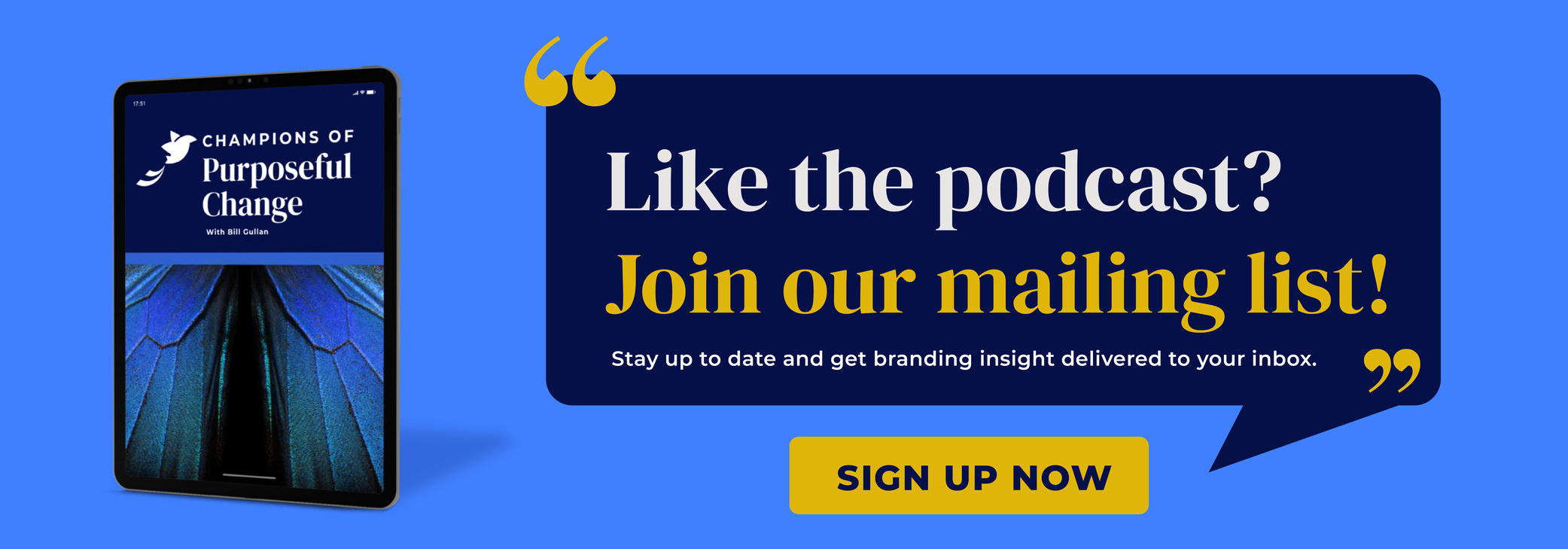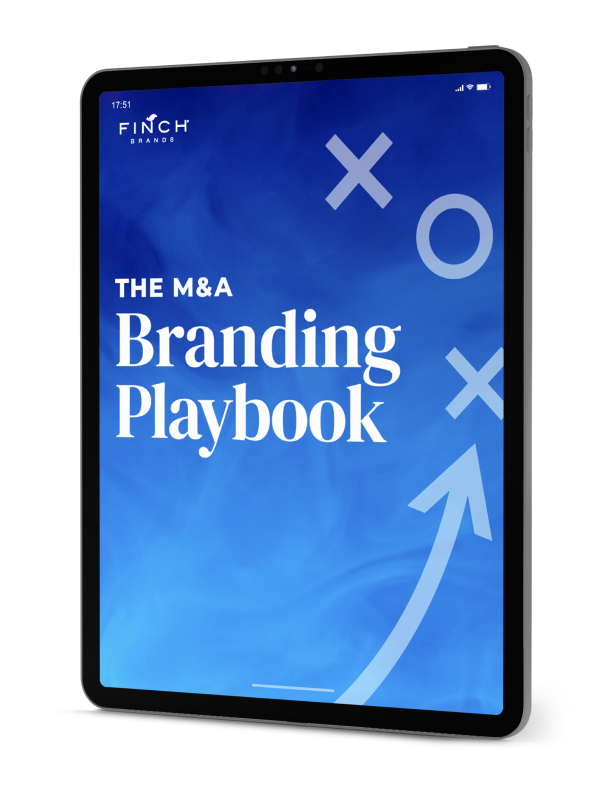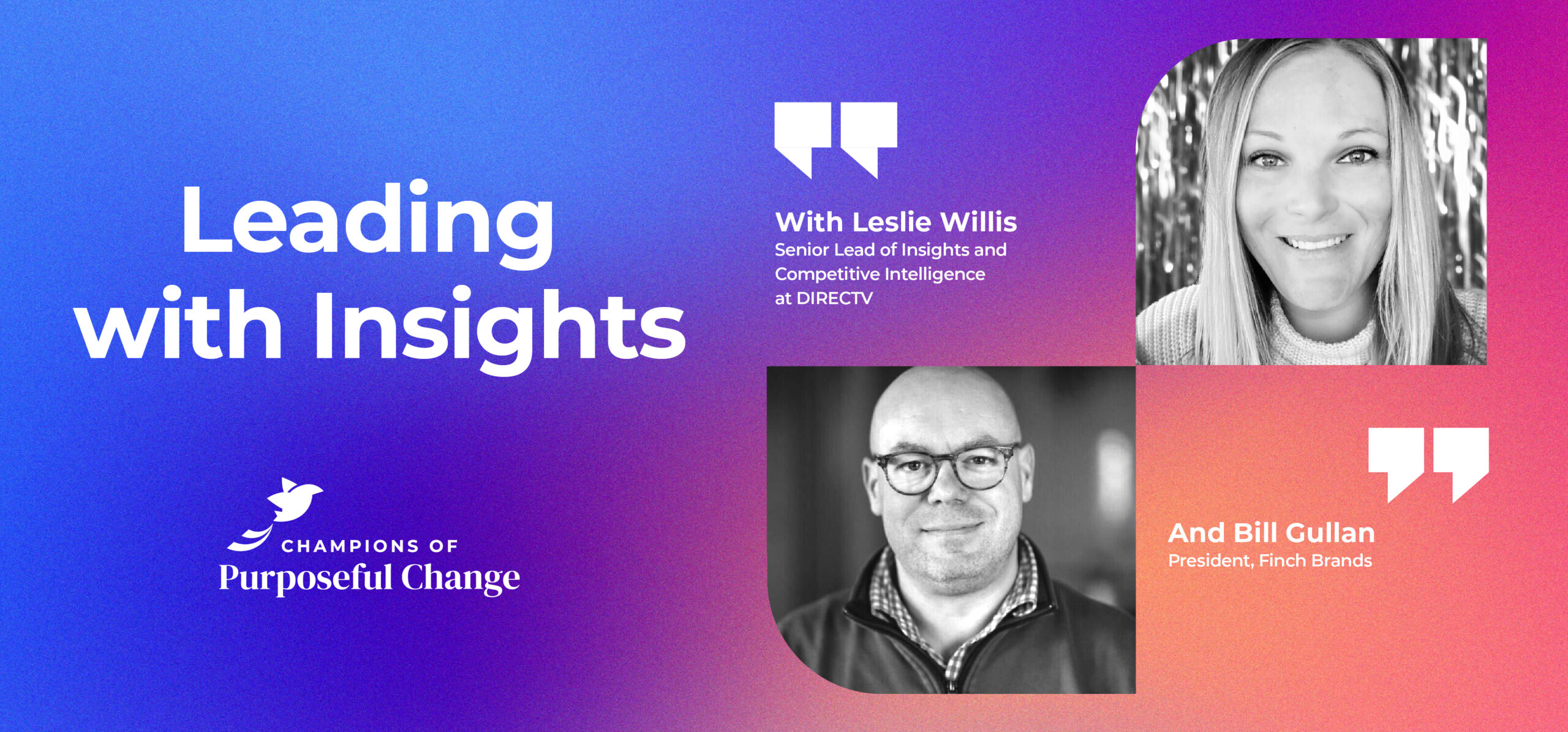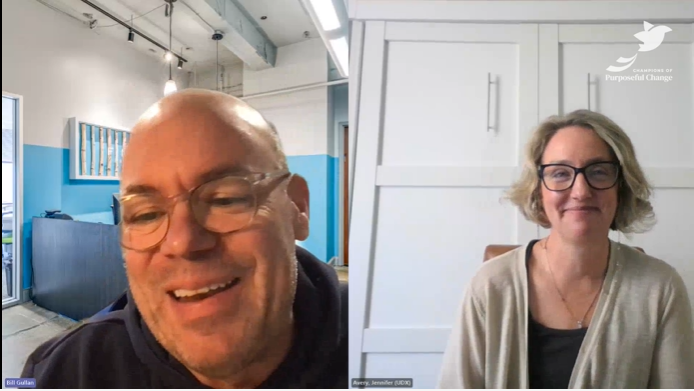Innovation in 2020 – Nick Catalana, General Manager – Innovation Foods
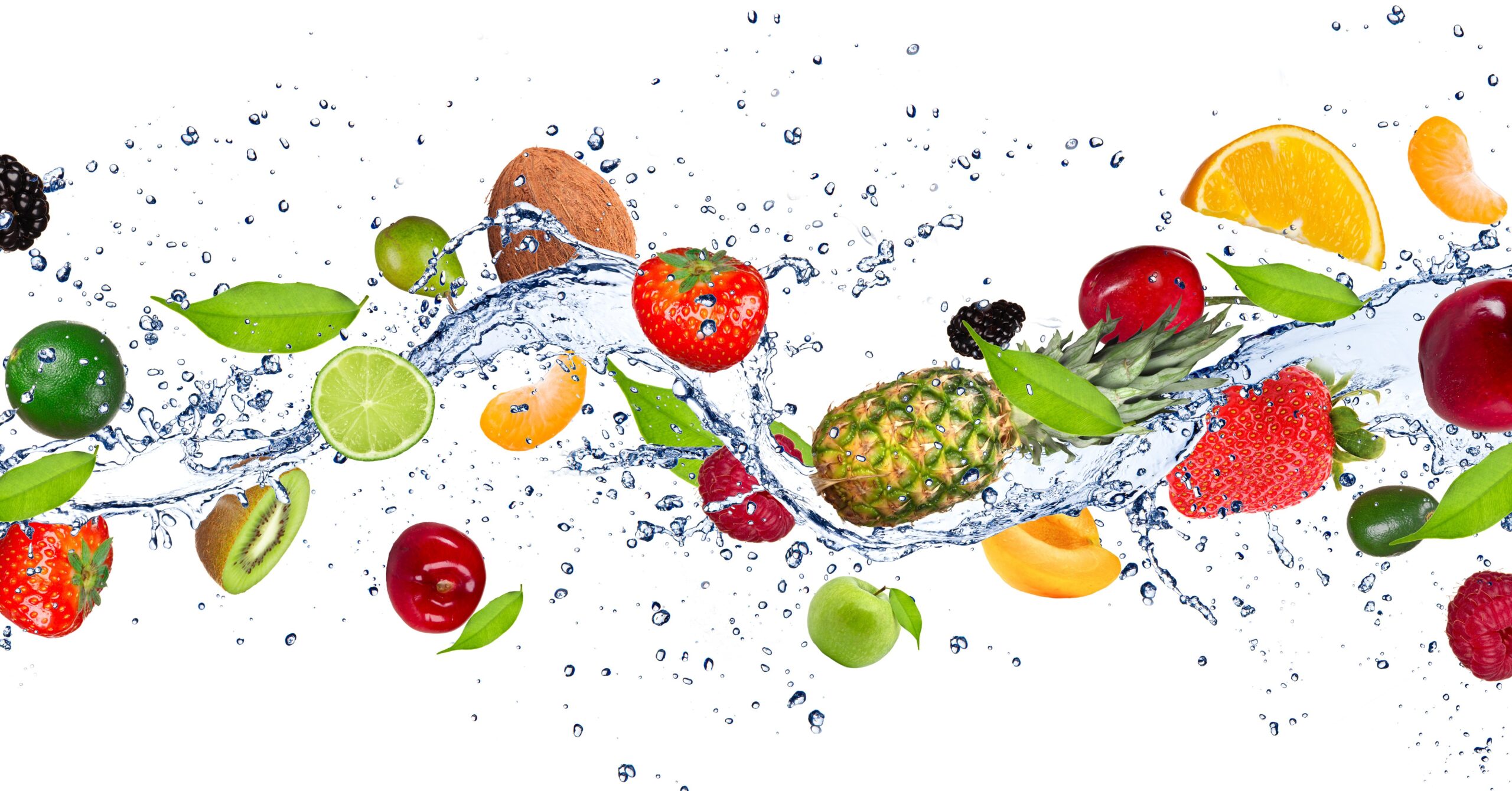
Tune in today to hear from Nick Catalana, General Manager of Innovation Foods. Nick tells the story of how he got into his family’s business, discusses how Innovation Foods carefully balances tradition with progress, and outlines the impact COVID-19 is having on the business. He also shares their purpose-driven pivot into producing hand sanitizer. If you like our podcast, please subscribe!
Transcription:
Bill:
Greetings one and all. This is Real World Branding. I’m Bill Gullan, president of Finch Brands, a premier boutique brand consultancy. And we’re grateful that you’re with us. It’s 2:00 Thursday, the 16th, I think. We’ve been timestamping the episodes that we record during the COVID-19 situation just simply because of how quickly headlines are changing things. And we’re really grateful to have Nick Catalana with us today. Nick is the general manager of Innovation Foods. Innovation is a contract food and beverage manufacturer, particularly in better for you categories. So that’s probiotics, organics, oatmeal, things like that. And Nick has a really interesting story to share both of his own sort of journey, how he is involved in a family business. Innovation dates back several generations. As well as what they are doing now to fight back and give back in this COIVD-19 moment. Innovation has recently pivoted at least one of their production capabilities in the direction of hand sanitizer, and amazing for them to do that and Nick will talk about that. So enjoying Nick Catalana.
Bill:
Excited to welcome Nick Catalana, the GM of Innovation Foods today. Thanks for your time Nick.
Nick:
Oh, so happy to be here, Bill. Thank you.
Bill:
It’s our pleasure. And as we were talking, we’ve had a little bit of a battle with the microphone and I just have such a sense of accomplishment that we figured this out. So it’s only going to get better from here.
Nick:
Those always end in defeat. It’s good to get one for the good guys.
Bill:
Totally, totally. So in that spirit, let’s start maybe where we typically do, which is you have an interesting sort of career backstory, from undergrad through to some restaurant business work and into where you are in Innovation Foods. Could you take us kind of through the twist and turns of that a bit?
Nick:
Yeah, absolutely. Sure. So I was born and raised in South Jersey, grew up in our family business, Cumberland Dairy. That business was started in the early thirties by my great grandfather. My grandfather and the third generation, which would be my dad and my uncles, really grew the business, the seventies, eighties, nineties, which led to the eventual founding of Innovation in 2008. I always find it funny when you talk to family business people who either grew up working in their own family business or maybe someone that worked for someone else’s family business, there’s typically one of two reactions. Either a giant sigh when you first started talking about it or a giant smile.
Nick:
So thankfully mine is definitely the latter. So definitely growing up in the business and working in the business was always sort of an option for us, but never a mandate. We were encouraged to find our passion and really pursue it. I have cousins and siblings that are museum curators and accountants, speech pathologists, and work for manufacturers or retail brands. Even though I knew early on that I wanted to join the business eventually, I think knowing that that freedom was there was really important. In high school, I was a rower, so I spent a lot of time on the Schuylkill. Eventually was recruited to row at Cornell. Go Big Red.
Bill:
Go Big Red.
Nick:
I studied hospitality at the hotel school.
Bill:
Legendary program.
Nick:
Oh. Definitely taught me a lot about time management and balance, but had a great four years there. And it really sort of helped me look at business or start to look at business through the lens of hospitality. And I think that helped me sort of frame the first couple of years of my career. So in our family we have sort of a pseudo rule or maybe it’s more of, I guess, a stern suggestion, that if you want to come back to the business, you have to either work somewhere else first, or pursue a graduate degree before coming back. So I think that was really powerful for me. And I chose to go work for someone else.
Nick:
So after college I had the good fortune of working for the Biel family in their family business, Hillstone Restaurant Group. They are most well known for their concept Houston’s, but I would argue probably more well known for their spinach dip. So shout out to the spinach dip. I lived and moved all around the country working for them. I moved eight times in five years. San Francisco, Atlanta, Miami, New York. So I became really good at moving. But in addition to that, at 24, 25 here I was the GM of a restaurant that did eight figures in sales with a staff of 50 and I had complete autonomy. So with that autonomy was a lot of P&L management and accountability directly to the ownership family. So even though it wasn’t directly related to manufacturing, I think having that outside experience was super important. And personally it allowed me to come back to the family business, not just because of my last name, but to bring some tools and sort of perspective back to help improve the business.
Nick:
So Andrew Knowlton in Bon Appetit Magazine wrote an awesome article about Hillstone. So definitely encourage anyone to read it if they haven’t. So I was with Hillstone for five years and toward the end I started to get the itch to sort of come back to our business. Had a conversation with my dad and uncles and said, “Hey, I think the timing might be right.” We spent a couple of days talking through it and then when I did come back, I spent six months in an onboarding program where I worked in each part of our facility, got reacquainted with our company culture, I got to know our employees, our employees got to know me. Eventually I moved into a sales and business development role, working with my uncle who really helped me to learn the ropes and get to know retail customers, convenience chains, grocery chains. And I think that was really helpful just to get off the bat and get going.
Nick:
In 2017 we were approached by a farmers cooperative, Dairy Farmers of America. And they wanted to acquire our dairy business. At the time, the business was not for sale. It wasn’t something that we were looking to do. But after about a year of negotiating and talking through it, we realized that it was the right decision and it was a good decision for everyone involved. Going through that acquisition process, I think was a education in and of itself for me. So we sold that portion of our business to DFA, but we retained a smaller office called Innovation Foods. I stayed on as a DFA employee for a couple of years and they were awesome. But I really felt the urge to kind of get back into that entrepreneurial thing and that really felt just much more natural to me. So Innovation Foods, we specialize in plant-based and sort of the natural organic segment. And that’s the business that I lead today.
Bill:
What a fascinating backstory. And one of the things I’d love to hear more about, you mentioned how the general management responsibility that you had in a pretty large scale restaurant environment seems like it was a pretty important part of your growth and development as a business person. Could you talk a little bit about how that role helps expand, or in your case, expanded horizons and you had a large staff, you had a lot of dollars, obviously going in and out. Talk about what it’s like to run a restaurant.
Nick:
Definitely. Yeah. So I think hospitality in general, it’s a relationship-based business, right? So I think there are a lot of ways to apply that to what we do today in our business. But from a restaurant perspective, I think certainly feel for everything that’s happening in that business right now. I mean it’s literally unprecedented and it’s unfortunately out of their control. But hopefully those guys can get the support that they need to sort of open up that business again and get that going because it is really the lifeblood of social gatherings and of who we are. But I think, to the piece about managing a group of people and sort of the spirit behind hospitality, I find that in the business that we do today too. That team aspect, the idea that you’re creating something from scratch, that you’re creating something tangible, the immediate feedback. All those things, I think, sort of apply to just sort of what we do today.
Nick:
And speaking specifically about COVID, I guess, I think this reaction, whether it’s in restaurants or it’s in manufacturing, I think first and foremost it’s important to be a human being. Acknowledge that we don’t have all the answers, listen to employee concerns, listen to their questions. I think there has never been a time where mental health has been more important. But I think that doing everything you can to just listen to an employee is really powerful too. Every day after 1:00 we started doing sort of an open mic session. So every day my door is open to all of our employees and some days we have four or five guys, some days we don’t have any. But I think opening that up to our guys is something that we found to be effective.
Nick:
From, I guess, the essential business, a piece of the equation, our facilities are considered part of the critical infrastructure as an essential business. So our employees are leaving their families and their homes at four or five in the morning while their friends and their neighbors are sheltering in place. And that’s scary. But while I think it’s a positive that we can continue to operate, with that ability comes a huge responsibility to keep our employees safe, and not just as safe as we normally do, but even to a larger extent and we take that really seriously. So I think there’s certainly a dance and a balance of sort of managing the increased production and the hours of operation for sure.
Bill:
Okay. And one other thing, and then I’d love to get into the specific COVID response that you guys have been doing. One of the other things in your own story that made an impact on me hearing you tell it was that period of time when you decided you were going to enter the business and how you were getting to know team members and how you started in business development with your uncle. And you talk about family business and when new generations enter or where there’s some sort of generational transfer, what was the process like for you in terms of gaining the respect and building the relationships with not only your dad and your uncles, but just the team around you as you became an important part of the leadership of the business over time?
Nick:
Yeah, so I think that it’s really important from my perspective, and I honestly learned this from some of the Hillstone training, I think it’s important for your employees to see you do their job and to understand that you understand what that job is. I think it’s important to know everyone’s name. I think it’s important to know their story, to be able to have a conversation in the hallway. I think, especially in manufacturing. Manufacturing where you’re being on the floor and in many ways, to the restaurant example, being a manager on the floor, being on the floor, interacting with guests, but being on the manufacturing floor, talking with the guys, understanding the issues. I think those are all important things.
Bill:
Excellent. So one of the things that’s made a big impression on us within the last couple of weeks was you mentioned obviously the essential business designation and the stuff that you’re normally manufacturing being essential to the maintenance of our food supply and everything else. That all makes sense. But there was a moment where you all pivoted because, I think, of manufacturing capability into the manufacturer of a product that is indispensable for all of us at this moment, and that is sanitizer. Could you take us through the thinking and the decision making process and tell us what you’re doing at Innovation to help make sure there aren’t any sanitizer shortages and to do what you can to support all of us.
Nick:
Yeah, no, for sure. So I think any human being sort of in any tragedy or a tough time, we all have our own process to try and find some meaning or some understanding of sort of what’s going on. And we know that our customers are happy to have oat milk and probiotics, but we wanted to find a way to do more, I guess to kind of in our own way, fight back. So my cousin Andrew who works with us and I, we sort of made it a passion project. So we got together with some of our suppliers and sort of one thing led to another and we understood the formula and came up with a name, we called it Formula 71. So 71 is the address of our manufacturing facility. And that felt right, felt like it was coming from home.
Nick:
So we’re going to get ready to produce that here later this week. That product will go out to local hospitals, some hospitals in New York City, certainly our employees and some local health centers and businesses. So want to make a special shout out to the folks at Good Belly for helping us get that done. Some really good stuff. So we’re excited for that.
Bill:
And you talk about meaning, and how to fight back. I would imagine, it sounds like everybody who’s touching that, from you to the other members of the team, probably have a great deal of passion for Formula 71 and what it represents.
Nick:
For sure. I think not unlike any other industry, whether it’s the restaurant business or the clothing industry, when you have people who are super passionate about what they do, and you bring in a challenge like this with a common cause that we’re all going through, they jump up and down and it becomes not just a challenge, but sort of like a charge. It’s like, “We’re going to figure this out. We’re going to do this.” And I think that that makes us feel good, but it also gives some purpose to their waking up at four or five in the morning doing what they do every day.
Bill:
Sure. Absolutely. So Innovation Foods, sort of normal course of business, beyond the sanitizer, although who knows what that becomes. You talk about probiotics and oat milk and other kinds of organic and better for you manufacturing capabilities for customers of all types across channels. Could you talk about, in a normal environment, what you’re building at Innovation Foods and maybe what we should be on the lookout for and sort of what’s going on? We know that the Cumberland got divested and here we are. What’s the focus at Innovation and where are you going to take it?
Nick:
Yeah, so I’m a little backstory. Innovation was, as I said, founded in 2008 by the third generation of our family, so my dad and his brothers, Frank and David. Each of them had sort of a unique skill set in this space, contract manufacturing, and the purpose of the business was to do exactly what we’re doing today. Develop relationships with new brands and use sort of our expertise in the business and our investments to help them grow. So in most industries, manufacturing businesses, the traditional co-packer strategy is to produce sort of a common product or a set of formulas for as many brands as possible. And to be honest, we’ve sort of had the opposite approach. We’ve never really been interested in transactional business, and that’s been true from the beginning. We work with a few select long-term partners with a unique business and we try and build that business together to help them grow.
Nick:
We’re a big Italian family, so we’re sort of “Bring it in” type of people. So that comes naturally to us. So the longterm relationship thing was easy for us. And that’s part of what we love most about this business, starting with a brand partner from scratch. When I was talking with a good friend about this interview coming up, we sort of joked about the idea that that new brands, or really any brand, it’s sort of like when a kid leaves for college, right? So some kids go off to college and they become Rhodes Scholars, right? Or some kids drop out or some kids might get a little too drunk at a frat party or something. So I think for us there’s a lot of those similar types of events, whether it’s the late night production trials, the first shipments out the door. I’ve actually waved goodbye to new product going out the door. So it’s like that big moment. It’s important.
Nick:
So I think that process really keeps it fun for us and keeps us going. Under the current innovation umbrella, we have a production facility, we have a trucking and logistics business and a fulfillment warehouse. So about 30 employees total. And looking toward the future, my sister Rachel is really the one that laid the foundation for the current business that we have. She has a biology and operations background. So when I came into the business, that production operation was rock solid. So she has a much important role right now. She’s out on maternity, so she’s raising her first.
Bill:
Oh wow that’s important.
Nick:
Yeah. But our plan for growth is really just to find new ways to grow with our current partners, but also to look at new spaces and continue doing what we love. Whether it’s, right now CBD is really hot. Sure. Functional products, functional beverages, that’s sort of always been our tradition. Our tradition of what’s next.
Bill:
Super cool. And you all are very much on top of key trends that are firing consumers up about health or about tastes or about these experiences. Is the focus up to this point, we talk about Rachel, is it your sense, with probiotics, with oat milk, with other sort of organic and better for you product categories, is that an area of particular personal passion? Or is that where we think the market is going? Or is there a reason why that more than anything else is a real focus today for Innovation?
Nick:
Yeah. I think for us, if you look sort of back on the history of our business and the history of our family, there’s always been a tradition of focus on what’s next. So when my grandfather was really growing the dairy business back in the sixties and seventies, it was soft serve ice cream mix, right? For McDonald’s. My dad and uncles in the eighties nineties and two thousands, it was extended shelf life and it was soy milk. And I think for us, we’re living it right now. We’re living oat milk and probiotics and the better for you products. So, I think our path has always been “What’s next?” We don’t know what it’s going to be, but we think it’s going to be a liquid. We think it’s going to have a longer shelf life. And apart from that we’re really open to everything.
Bill:
Right. Really cool. So when you think about your journey and it’s just beginning in many ways with all that’s happening at Innovation Foods and you took us through some of the pathways that you took educationally and in your early career, are there particular words of wisdom or important sort of mantras that are indispensable to you as you think about life as a citizen, as a business person, as a family person, for those who’ve been inspired by your path? Is there anything you’d share that’s been important to you?
Nick:
Absolutely. I think obviously as you can tell, family business is a theme. So I would say in any family business patience is A, number one. Being patient and understanding that relationships and developing those long-term ties will take you a lot further than trying to knock out the next project. I think especially at a time like this stability is really, really important. And I think, like I said, you have no better example than what we’re living right now. And really transparency, both internally and with customers. Transparency with your employees, transparency with customers. And lastly, innovate. Always be innovating. I think that’s something that like I said, our tradition of what’s next has guided us a long time and I think that will continue to go that way.
Bill:
Excellent. So growing business with some scale, but it sounds like many of the values that have always been part of this family business are very much in evidence and remain central to what you all are doing today. Nick, thank you so much.
Nick:
Thanks for having me Bill. This was great.
Bill:
Many thanks to Nick for his time and insight. Thanks to him and his team for all the work that they’re doing at some personal risk during this period of time. They are an essential business. The food supply obviously is important to all of us and we’re so grateful that they get up early in the morning and they put their days in. And I know that Nick was talking about all the precautions that they’ve taken within their plants and within the company for social distancing and safety and everything else. And a particular thank you for what they’re doing on the sanitizer side to give us all the tools that we need to stay a safe and healthy.
Bill:
We at Real World Branding would greatly appreciate your support in a couple of different ways. One is to click subscribe and make sure you do not miss an episode. We’ve been doing these weekly more or less, a lot of really great stories to tell right now and so we’ve been trying to bring as many of them to you as we can. So if you click subscribe, you will not miss a single episode when it goes live. Second thing you can do is give us a rating and a review within the podcast store of your choice. That helps us get found. It also helps us learn how to make sure that our content is ever more valuable to those of you who spend a little bit of time with us. And then the third thing is let’s keep the dialogue going on Twitter, probably is best, @billgullan @Finchbrands. Love comments and feedback, love ideas for future guests, future topics. Other things we can talk about as we both enjoy doing this. And hopefully you do too. So we will sign off from the unseasonably chilly Cradle of Liberty.
